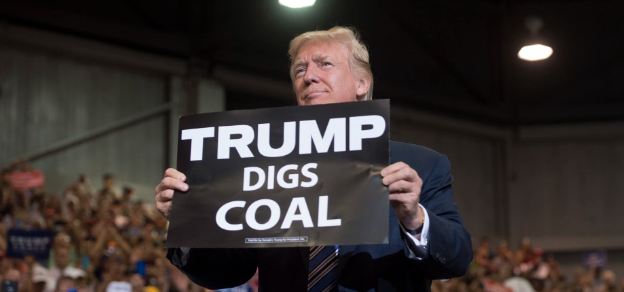When Donald Trump is re-elected, environmental protections will be especially under threat. His administration intends to unravel climate policies and put fossil fuel interests first, and Americans have questions about where the United States will go on the environmental front.
Key Takeaways
- Trump’s administration could aggressively undo climate policies, aiming for fossil fuel expansion.
- The environmental movement is mobilizing to counter potential policy rollbacks.
- Key climate policies, such as the Inflation Reduction Act, face uncertain futures under this administration.
The Donald Trump re-election could also be the start of a new era in US environmental policy, potentially reversing protections for climate change. In his campaign and subsequent comments, Trump has been explicit in stating that he plans to gut most of the climate progressive achievements of his predecessor. And for those of us committed to a future that can be sustained, the new administration’s agenda is disconcerting.
For the top priority on Trump’s list is the reversal of the U.S. role in the international climate agreements such as the Paris Climate Agreement. During his first term, Trump was famously the first to withdraw the US from this historic international agreement, an act that had brought hysterical debate over the nation’s leadership in fighting global warming. Now, with Trump back in the White House, he is going to reinstate policies that favour fossil fuels over clean energy.
Furthermore, the new government has spelled out plans to expand oil and gas drilling. The president Trump supported fossil fuel extraction as never before, and focused on “energy independence” via more domestic extraction. It is this policy that environmentalists accuse him of environmentally backwards policies that have a short-term economic benefit over long-term sustainability. This focus on fossil fuels is directly incompatible with a transition to clean energy that’s part of the solution to the nation’s rising carbon load.
Even green leaders worry that Trump’s administration will play the game more smartly this time, after the previous administration was seen as doing too much wrong. Although the first Trump administration struggled with a lack of senior staff with relevant experience, the next one could employ both ideologically aligned personnel and those who are more conversant with bureaucratic lingo. That may mean more rapid, more effective repeals of environmental protections.

One of the most important pieces of climate legislation currently on the market is the Inflation Reduction Act, which was promoted as the most ambitious climate law in U.S history. The Inflation Reduction Act has received support for the tax incentives on renewable energy development and emissions reduction measures. But Trump’s group sees the act as a “green new scam” and wants to kill it. It might not be as simple to repeal as some people thought it would be, say experts, now that the law has gained popularity with Americans who perceive its tangible impact.
Beyond these domestic developments, the impact of Trump’s climate policies could also be global. World environmental groups sounded the alarm that the United States could scupper international climate action. And when one of the biggest carbon producers shows no willingness to act, not only does it undermine global will but also sets the stage for others. It’s whether environmentalists and international coalitions will be strong enough to fight back against the Trump administration.
But climate change activists are not doing nothing – even in the face of this dark prediction. Many groups are already getting on their feet and committing once again to lawsuits and grassroots action to resist pernicious policies. Environmental groups are building coalitions to support current climate policies and to stop environmental protections being stripped back further.
While the environmental movement has it tough, there are some who suspect Trump’s actions could also build the movement by invigorating popular will. Climate change has also become much more prevalent in recent years as the younger generation understands the need for sustainable solutions. With the new administration trying to reverse decades of progress on the environment, activists believe there is only more and more popular pressure for policymakers to start thinking about climate change in an objective way.




